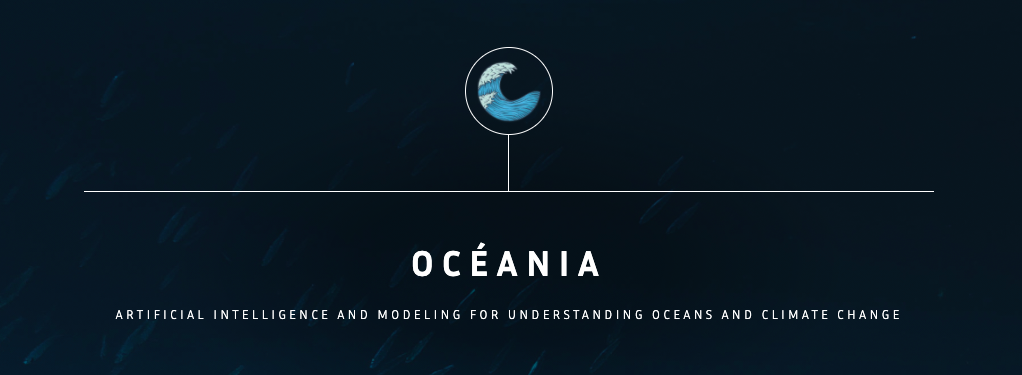
There is strong scientific evidence on the adverse effects of climate change on the global ocean. These changes will have a drastic impact on almost all life forms in the oceans with further consequences on food security, the ecosystems in coastal and inland communities. Despite these impacts, scientific data and infrastructures are still lacking to understand better and quantify the consequence of these perturbations on the marine ecosystem. It is necessary not only to gather more data but also to develop and apply state-of-the-art mechanisms capable of turning this data into effective knowledge, policies, and action. This is where artificial intelligence, machine learning, and modeling tools are called for.
OcéanIA is an Inria Challenge that aims at developing new artificial intelligence and mathematical modeling tools to contribute to the understanding of the structure, functioning, underlying mechanisms, and dynamics of the oceans and their role in regulating and sustaining the biosphere, and tackling climate change.
This is a four-years project (2021-2025) led by Inria Chile and including partners from other 6 institutions from Chile and France.
Teams from Inria Chile, ANGE from Inria Paris, TAU from Inria Saclay and BIOCORE from Inria Sophia-Antipolis are participating. Also the Tara Ocean Foundation, the GO-SEE Federation from CNRS, and the LS2N ComBi team from the University of Nantes, are partners.
Likewise, Inria Chile, in its mission to build scientific leadership by accelerating the research strength of its teams in collaboration with those of Chilean universities, invited the Center for Mathematical Modeling from Universidad de Chile and the Department of Ecology and the Global Change Center from Pontificia Universidad Católica de Chile to join as relevant actors within this initiative.
Visit OcéanIA oficial website here.
